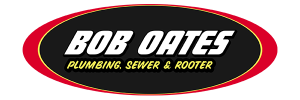5 Most Commonly Asked Plumbing Questions
CALL (206) 789-4944
Serving the Greater Seattle Area

We get plenty of plumbing questions here at Bob Oates Sewer and Rooter. And we have answers for those questions! We are always ready to assist the communities we serve by providing expert drain cleaning tips for homeowners. From Lynnwood in the North End to Bellevue on the Eastside to our friends in Tacoma and the South Sound — we’ve got your back!
Here are our answers to the top 5 most commonly asked plumbing questions.
1) Why Does the Toilet Keep Running?
This is probably the most commonly asked plumbing question. And we’ve dedicated an entire blog post to fixing a toilet that’s constantly running in the past.
In most cases, it is caused by the flapper not closing on or making a proper seal around the flush valve. If the flapper is not closing, then jiggle the handle and that will normally fix the issue. If the flapper is worn out and not properly sealing, then you will have to have the flapper replaced.
Either way, if the flapper does not seal the water will leak into the toilet and the tank will not fill with water to push the float up and turn off the supply of water. Getting a toilet to stop running because of the flapper is usually an easy fix. Of course, Seattle’s trusted plumber is at your service for any toilet issues!
2) What Can I Put in My Garbage Disposal?
Garbage disposals are designed to handle only soft food debris, such as mashed potatoes, cooked carrots, and eggs. However, hard items like bones, coffee grounds, and eggshells can damage the blades and cause jams. It’s important to always run water through the disposal while it’s in use to aid in breaking down the food and ensuring it flushes properly through the drain.
Pouring Grease Down the Sink
Furthermore, disposing of cooking grease in the kitchen sink is also one of those things we at Bob Oates recommend you should never do to pipes. can also create plumbing and environmental problems. Doing so (even if you run grease through a garbage disposal) builds up and clogs pipes, leading to potential sewer overflows. To prevent these issues, it’s recommended to discard grease in the trash.
If you must use the sink, flushing the grease with cold water helps it solidify into particles, allowing it to move more smoothly through your plumbing. (It may sound counter-intuitive, but you actually heighten the risk of clogs by using warm or hot water, which maintains grease in a semi-liquid state.
3) Is It Safe to Use Chemical Drain Cleaners?
We often get asked if Drano is bad for pipes. The bottom line: Drain cleaners are very toxic. If you ever look on the back of the product you will notice at least 3 warning labels. They’re generally not very good products to have lying around your house, especially if you have kids or pets. These toxic chemicals are also very bad for your pipes, causing them to deteriorate from the inside out. If this happens your drain lines will need to be replaced.
Be More Environmentally Friendly
Safe and green alternatives are available to consumers who are concerned about the potential effects of Drano and other common drain cleaners. There are products with enzymes and friendly bacteria that will keep grease and sludge from building up inside of your pipes, and are better for the environment.
Also preferable are good, old-fashioned plungers, as well as baking soda, drain snakes, and cleaning of pipe traps manually are tools and strategies so that homeowners can maintain their systems and avoid sewer repair.
4) Why Do We Run Out of Hot Water So Quickly?
Depending on the age and type of your water heater, there are a couple of reasons you may be running out so quickly.
Electric Water Heaters
Electric water heaters commonly have 2 elements that heat the water: The top element and the lower element. Chances are if you are running out of hot water quickly the lower element is not working and only the top portion of the tank is being heated. If the top element stops working, then neither will heat and you will have no hot water.
There is also a reset button on an electric water heater that can trip. If the reset button is tripped that is an indicator that there is a more serious problem.
Gas Hot Water Tank
If you have a gas hot water tank the most common reason is the dip tube. The dip tube is a piece of pipe that directs the cold water to the bottom of the tank to get heated. Over time, this dip tube can get shorter, causing the cold water to mix with the hot, causing tepid water.
Please don’t hesitate to reach out to us if you have any questions or issues about your water heater or your water main.
5) Why Does My Drain Get Clogged?
In most cases drains get clogged because people are not careful of what goes in the drain, especially in the kitchen (see above: what NOT to put in garbage disposals). Other drains, like the bathroom sinks and showers, get clogged due to residues from soap and hair.
At Bob Oates Sewer & Rooter, we’ve written extensively on drain cleaning as a preventive measure to extend the life of your pipes. But one foolproof form of prevention is to always be conscious of what you put down your drain and treat your drains with safe cleaning products. And should there ever be a clog that you want our techs to handle, and quickly, we’re ready to deliver professional drain cleaning services right away.
Final Thoughts
We hope the answers provided here are of use to you and help keep your plumbing flowing smoothly. The team at Bob Oates is always here for any further questions — contact us anytime!
CALL (206) 789-4944
Serving the Greater Seattle Area





